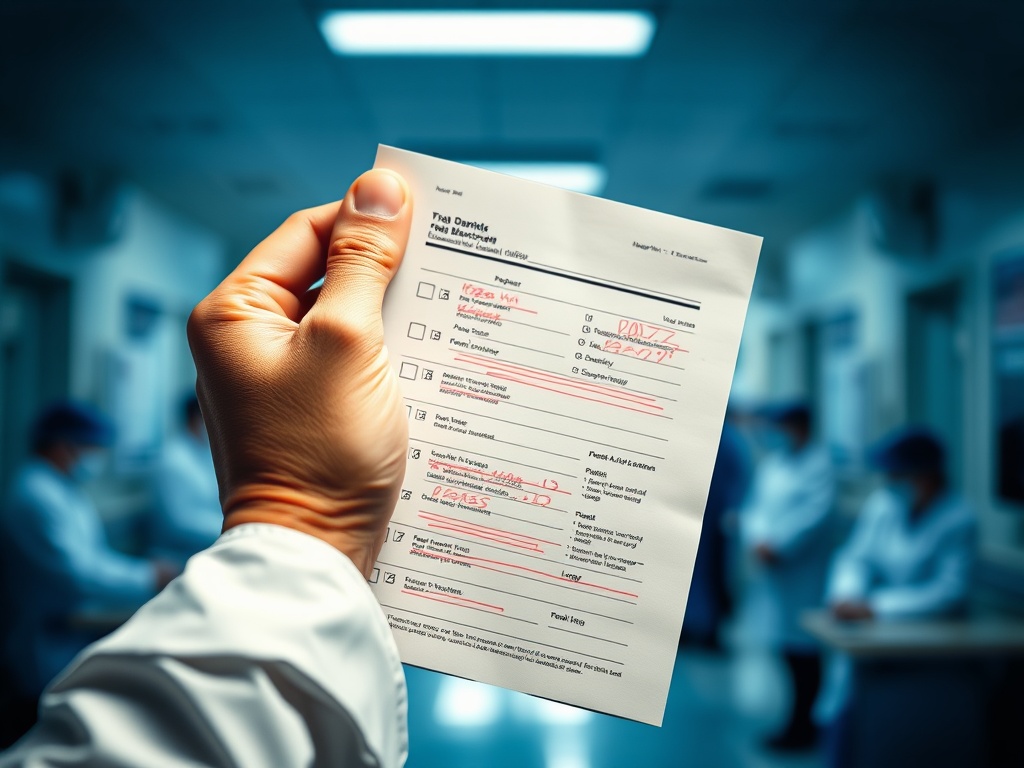A recent and significant exams blunder has led to a situation labeled as “catastrophic,” affecting close to 300 doctors who received incorrect results for a critical assessment. Senior medical professionals have raised alarms, indicating that this error could have serious repercussions for both NHS staff and the patients they serve.
The Doctors’ Association UK (DAUK) and the British Medical Association (BMA) are calling for a thorough investigation following revelations from The i Paper, which disclosed that 222 medics were mistakenly informed they had passed an important exam 18 months ago when, in fact, they had failed. At this point, it remains unclear how many of these individuals may have advanced to the position of registrars based on the erroneous results. Of the 1,451 medics who participated in the exam on September 6, 2023, 61 were incorrectly told they had failed when they had actually passed.
The General Medical Council (GMC) is reportedly investigating whether patient safety was compromised as a consequence of this error. The assessment in question is the Part 2 written test, part of the Membership of the Royal Colleges of Physicians of the United Kingdom (MRCP(UK)) exam series. This exam is one of three critical components that doctors must complete to advance in their specialized medical training.
According to the Federation of Royal Colleges of Physicians, the MRCP(UK) is an essential qualification for all physicians training in medical specialties within the UK. It is particularly vital for those aiming to transition from resident doctors, formerly known as junior doctors, to registrars in fields like intensive care medicine, cardiology, haematology, and respiratory medicine.
Only after one of the affected medics challenged their result did the Federation conduct a recent audit, which revealed that nearly 300 doctors were ensnared in this data processing error. Helen Fernandes, chair of DAUK, expressed her concerns, stating, “This seemingly unprecedented situation has and will have significant and widespread implications for those affected, as well as for the clinical teams they have collaborated with, and perhaps even the patients they have treated.” She emphasized that patients might feel uneasy knowing they were treated by individuals who may not have been properly qualified.
Fernandes highlighted the critical role that postgraduate examinations play in shaping the careers of future hospital consultants, general practitioners, and other medical professionals. She noted that these exams demand extensive study outside of regular working hours and incur considerable costs. “This error will undoubtedly impact career progression and visa applications for international doctors, some of whom are already facing severe consequences,” she added.
Expressing her worry about the reliability of computerized exams, Fernandes called for a comprehensive review of the processes that led to this monumental mistake. “This setback occurs at a time when resident doctors and those in training—who are the future leaders of our NHS—are already under immense pressure due to workplace stress, burnout, a shortage of training positions, and the increasing presence of physician associates and anaesthesia associates at the expense of doctors’ training and job opportunities,” she remarked.
She concluded by advocating for a review of the circumstances surrounding this incident and the necessity for open dialogue with trainees and stakeholders. “This will be a vital step in restoring trust and ensuring fairness for all candidates. We remain committed to supporting doctors and trainees throughout this process and hope to see constructive actions taken to rectify the situation swiftly and equitably.”
The Federation has acknowledged that the incorrect results stemmed from a data processing issue and has promised to refund exam fees, with resits offered at no additional charge. The BMA has stated that the ramifications of this error are “far-reaching” for both doctors and patients. Those medics who were mistakenly informed of passing may have advanced in their careers, now facing uncertain futures, while others who were told they had failed might have incurred costs for resitting or even left the medical profession entirely.
Key Reactions from Medical Leaders

Professor Philip Banfield, chair of the BMA Council, commented, “Failing an exam is devastating and carries significant consequences as doctors navigate their path to expertise; being incorrectly informed that you have failed when you have actually passed is even more distressing. For the 222 doctors who have spent the last 18 months under the impression they passed, only to find out otherwise, the emotional toll is profound, leaving them uncertain about their futures.”
He further emphasized, “The moral, legal, and governance aspects of this serious error are far-reaching and must not be overlooked by the public, the government, or the NHS.” Banfield called for an immediate independent investigation into this matter, particularly focusing on the long delay in identifying the error through routine audits. “The federation must also commit to providing substantial support and compensation for all doctors whose lives and careers have been thrown into turmoil due to this mistake. We urge all affected doctors to reach out to the BMA as we collaborate with the Royal College of Physicians to explore options for support, compensation, and restitution with our legal team.”
Dr. Mike Jones, executive medical director of the Federation, expressed sincere apologies on behalf of the Federation of the Royal Colleges of Physicians of the UK, stating, “We deeply and unreservedly apologize for this situation. We understand how distressing this will be for the candidates impacted, and for some, it may add an extra burden to the crucial work they do.”
